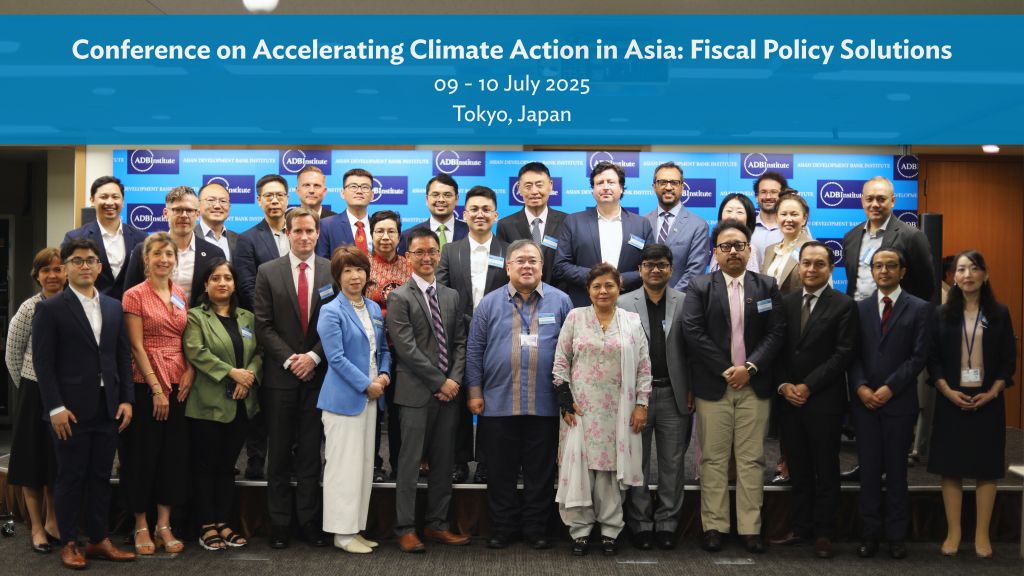NEWS
Accelerating Climate Action in Asia: The Role of Sustainable Public Procurement
July 24, 2025

Accelerating Climate Action in Asia: The Role of Sustainable Public Procurement
Sourcinghaus recently participated in the ADB–ADBI Conference on "Accelerating Climate Action in Asia: Fiscal Policy Solutions", which brought together leading voices to explore practical strategies for addressing one of the region’s most pressing challenges: the intersection of fiscal policy and climate resilience.
Special appreciation goes to Shamshad Akhtar for her keynote, “Debt, Climate, and Development in the Asia Pacific: Breaking the Vicious Circle” underscoring the fiscal tightrope many governments face - where rising debt and slowing growth intersect with escalating climate vulnerability. The call for fiscally credible, climate-aligned policy tools was clear.
Why it Matters:
🔹The region is both a major emitter and victim of climate change, hosting 13 of the 30 most climate-vulnerable countries—facing over 70% of global disaster losses since 2000.
🔹Annual requirements for mitigation and adaptation total USD 1.1–1.4 trillion, with a financing gap of ~USD 800 billion per year.
🔹Private capital is expected to contribute ~90% of total climate finance in Asia-Pacific by 2030—underscoring the need for enabling policy.
🔹The region risks losing up to 17% of GDP by 2070 due to sea level rise, declining labour productivity, and climate-induced disruptions.
On behalf of co-authors James Correia, Drewya Cinantyan Prasasya, Neha Verma, Jenny Chu, and Farid Yaker - I presented our joint draft paper: “Advancing Sustainable Public Procurement in Asia and the Pacific: From Policy Aspirations to Measurable Impact.”
The paper makes the case that public procurement—shaping more than 75% of emissions-intensive sectors—is a powerful lever for climate action, resilience, and inclusive development. Procurement, despite its fiscal significance, remains under-leveraged in climate policy.
Key Takeaways:
🔹 Align procurement with strategic goals: Position procurement to advance climate action and SDG outcomes by targeting emissions, reducing resource use, and building resilience.
🔹 Integrate sustainability into legal frameworks: Embed SPP principles in national procurement legislation, with examples from across the region.
🔹 Leverage fiscal instruments to drive change: Utilize green subsidies, life-cycle costing (LCC), total cost of ownership (TCO), blended finance, and public-private partnerships (PPPs).
🔹 Apply digital systems for impact monitoring: Track and report GHG reductions, circularity metrics, and resource efficiency.
🔹 Adopt performance-based procurement metrics: Link procurement to measurable environmental and social outcomes.
🔹 Strengthen the business case for SPP: Over 50% of abatement potential in procurement-shaped sectors is achievable at < USD 15/ton CO₂e—supporting the fiscal and climate rationale for national integration.
A special thank you to Suranjali Tandon for her constructive critique which will help us further strengthen the final paper.

